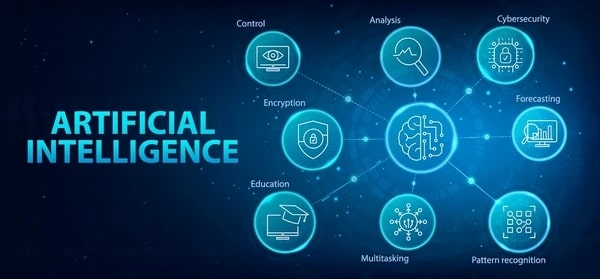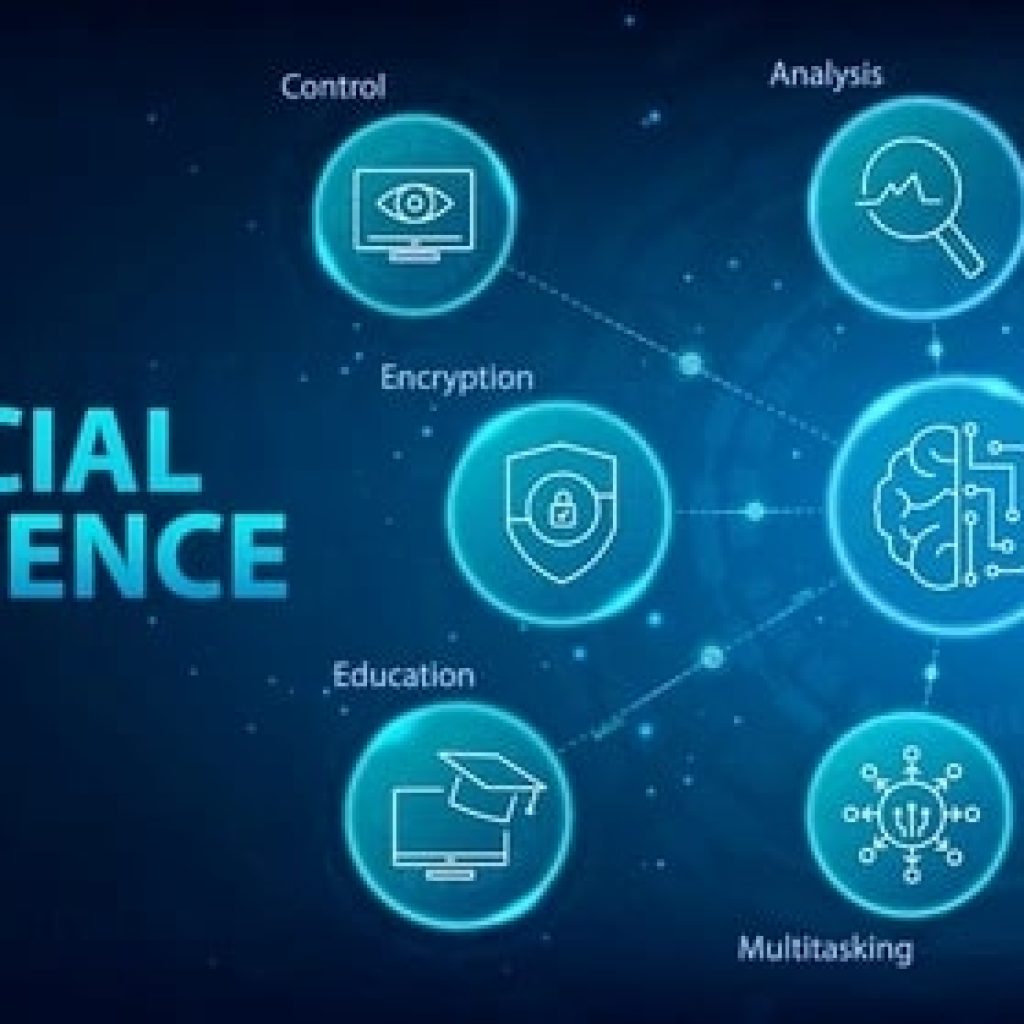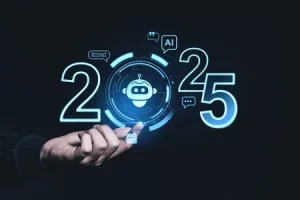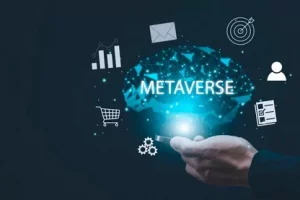
What is Future of Artificial Intelligence?
- Posted by 3.0 University
- Categories Artificial Intelligence
- Date September 6, 2024
- Comments 0 comment
AI’s Future: The Dawn of a New Era After GPT-4
The prevalent scenario significantly implies that the future of artificial intelligence emerges to be even more transformative as we move beyond GPT-4 and into a new era of technological breakthroughs.
Yes! Indeed, there have been exemplary and exponential advancements in AI. and of course, the latest AI technology is already reshaping industries and daily life, but what’s next?
As we discover more incisive facts about the latest developments in AI, it’s clear that new AI technology will continue to revolutionize everything from healthcare to creativity.
Let’s we delve into AI and the future!
Here, the revolutionary technological advancements will fundamentally alter how we interact with the outside world. The world has changed due to technology use, and the health care sector is undoubtedly not an exception.
Digitizing records greatly reduces the possibility of human errors, since such errors are generally made in situations such as – when details or prescriptions are omitted from handwritten papers or documents.
Although healthcare is perhaps the most urgent example of how the use of artificial intelligence is gradually shifting our everyday live.
Education is one more likely scenario to accompany healthcare into the AI era. AI continuously undergoes α-quantum leaps, driving technology to the highest heights possible.

Some intriguing facts…
As per Wayne University, GPT-4 has a significant potential impact on the AI and ML landscape.
Fascinatingly, GPT-4 indicates the newest iteration of the popular GPT series, known as “Generative Pre-trained Transformer”, for full.
Built on a neural network, GPT is an extraordinary machine learning (ML) model that has undergone training using huge chunks of information.
It is able to generate text that is very similar to human language.
Predictions indicate that GPT-4 will enhance the capabilities of GPT-3 by enhancing accuracy and enhancing the capacity to perform more complex tasks, such as making decisions based on previously disclosed data.
Users who are involved in NLP and text creation may be concerned about the viability of GPT-4.
GPT-4 has the potential to improve chatbots, self-service, and, lastly, the content team. GPT-4 could be a powerful tool that helps to change the entire NLP and text production within organizations.
Any new technology requires us to be aware of its risks.
Indeed, it would be a good idea for companies to monitor GPT-4 and think about how it might actually assist them.
What impact will GPT-4 have on the business landscape?
The significance of GPT-4 lies in its ability to diversify writing tasks and handle multimodal information, which has the potential to significantly contribute to AI’s growth.
GPT-4 has the potential to accelerate computer learning advancements by rapidly and effectively interpreting information using new data analysis techniques.
GPT-4 is likely to provide developers with a technological tool that can create more realistic AI models and ultimately lead to AI technology adoption.
By GPT-4’s implementation, the precision of machine learning models will improve.
There are so many possible impacts, and they can reach anywhere you want. There are a wide range of possibilities for taking full advantage of GPT-3 AI. This includes making coherent and full essays, poems, and stories, and having meaningful and quality talks.
Moreover, the Excel add-on not only generates code completions but also provides GPT-3 with another excellent use case, which is to simulate intoxication.
Businesses that use this tool report numerous benefits, such as a reduction in daily task time and the ability to produce essays and articles of high quality.
“GPT-3 could be an obedient coworker by increasing human writing speed, even though it is a machine.”
Besides, it is capable of producing better ideas by making a suggestion instead of getting bored, which most other machines (AI) do!
GPT, an internet-trained machine learning model, can produce writing that closely resembles human language.
GPT-4 will probably not be as error-prone as the third version, apart from its specialized skills for multitasking and complex tasks. Furthermore, GPT-4 has the potential to play a role in NLP (Natural Language Processing) and text generation businesses, as well as pose a threat.
GPT-4 has the capability to perform human-like responses in the chatbot system, automate other tasks, and generate more content.
GPT-4 can become a turning point in the area of NLP and text generation within corporations. Every new technology carries associated risks, which the staff needs to be aware of.
Businesses should stay informed about the introduction of GPT-4, using it as an opportunity to evaluate and acknowledge the introduction of new technology within the company.
In education, AI has a profound effect.
With the advent of AI in education, the pedagogical approaches of our traditional schools and colleges have begun changing at a rapid rate, even becoming obsolete.
AI’s ability to manage health more effectively and efficiently gives me more hope for resolving the environmental crisis, as experts often find themselves overwhelmed by the volume of data from various sources.
Ethical AI: Challenges and Solutions
In recent times, understandably, a few issues have sparked off such a keen debate, like the question of AI’s ethical implications.
For example, GPT-4 and similar AI systems can sometimes propagate bias through the data used in training and, as a result, contribute to unfair outcomes.
The future of AI must be the one that addresses the ethical facets through a combination of more transparency, accountability, and unbiased algorithm development.
In fact, the policy frameworks titled ‘Ethical AI’, proposed to be established by governments and/or private firms, aim to scrutinize the responsible growth process of AI and its operation, ensuring its implementation in a fair and fulfilling manner as intended.
Summing it up,
The prospects for AI seem to be very bright, promising an era of automation in almost every industry.
Beyond the developments of multimodal systems and the integration of reasoning or common sense, AI-serviced technology will continue to pioneer the technology space.
Interrelations, a type of cooperation between people and technologies, harmonize creativity and productivity in a way that surpasses our expectations.
AI will play a significant role in the job, with human beings serving as the security force.
Indeed, as we are on the brink of such advancements in AI, it is certain that the next wave of AI technology will bring us one step closer to a time when science fiction will increasingly feel like reality.
However, it’s all, seemingly, true.
Stay tuned in the upcoming article to discover how AI and GPT-4 can ensure the quality of the air around us, assist in tracking ecological footprints, respectively, and more.
Kickstart your AI career with 3.0 University flexible online learning platform. Study at your own pace, master essential skills like machine learning, deep learning, and natural language processing, and connect with a community of like-minded professionals.
Don’t miss out on this opportunity to launch your AI career. Enroll now in 3.0 University, AI online course!
You may also like

AI-Driven Cyber Threats

AI Education and Job Market in 2025

